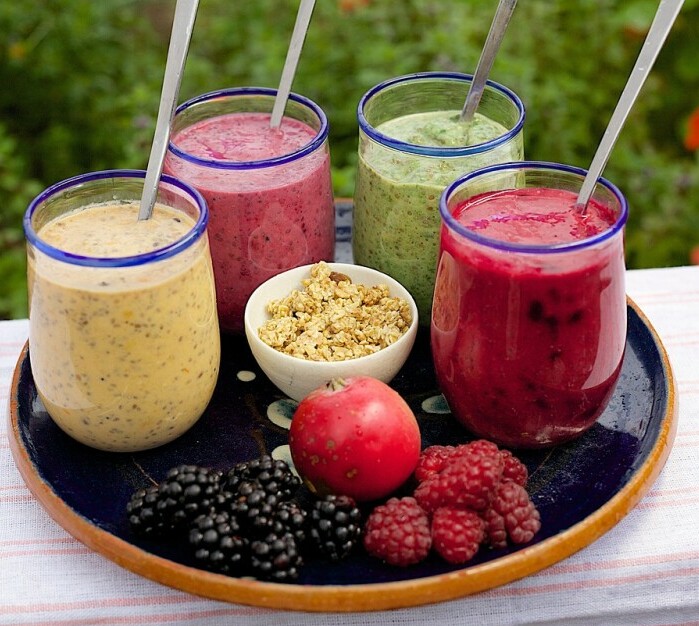I understand the myriad of food choices can be overwhelming. You’re constantly bombarded with dietary advice, often conflicting. Amid all the noise, a term you may have come across is ‘nutrient dense foods.’ But what does that really mean? It’s simply about foods rich in vitamins and minerals compared to their calorie content. Choosing these foods can make a huge difference to your health without contributing to calorie overload.
Consider this: not all calories are created equal. A doughnut and a kale salad might have similar calorie counts, but their nutritional profiles are worlds apart. While the doughnut is calorie dense, offering little more than quick-burning sugars and fats, the kale is packed with fibre, vitamins, and minerals. This means, for the same calorie intake, nutrient dense foods like kale offer far more in terms of your body’s needs.
Including more of these foods in your diet isn’t just about avoiding excess calories; it’s about fueling your body with everything it needs to function at its best. The benefits extend beyond weight management to improving your immune system, reducing the risk of chronic diseases, and enhancing your overall vitality.
So, how can you spot these powerhouse foods? And once you’ve found them, how do you make sure they become a staple in your diet? In the next section, we’ll break down the concept of nutrient density even further and explore its significance for your health.
Decoding Nutrient Density: What It Means for Your Health
Nutrient dense foods are, simply put, foods packed with vitamins, minerals, fibre, and other nutrients critical for your health, but with relatively few calories. Think of them as nature’s multivitamin; they give your body what it needs to function at its best without overloading it with unnecessary calories.
So, why does nutrient density matter? Your body needs a wide array of nutrients to perform everyday tasks, repair itself, and protect against illness. Nutrient dense foods help you meet your body’s requirements without consuming excess calories that can contribute to weight gain.
Understanding macronutrients and micronutrients is key. Macronutrients, like protein, carbs, and fats, provide energy. Micronutrients, which include vitamins and minerals like vitamin C and iron, support a range of bodily functions from cognitive performance to bone health.
The concept of measuring nutrient density can guide you to smarter food choices. Foods are generally considered nutrient dense when they provide a high amount of nutrients for a relatively low number of calories. Think broccoli or berries – low in calories, but high in valuable nutrients.
Incorporating nutrient dense foods into your diet has a direct impact on your health. They support your immune system, can improve mood and energy levels, aid in controlling weight, and contribute to the prevention of chronic diseases like diabetes and heart disease.
Top Nutrient Dense Foods to Power Your Diet
Imagine your body as a high-performance engine that thrives on premium fuel. That’s exactly what nutrient dense foods are: premium fuel for your body. At the core of these power-packed foods are essential vitamins, minerals, and antioxidants that support your health in myriad ways.
Let’s start with vegetables. The likes of spinach, kale, and broccoli aren’t just green on your plate; they’re goldmines of nutritional wealth. Packed with iron, calcium, fibre, and vitamins A and C, they are essential for strong bones, a robust immune system, and overall vitality.
Fruits are nature’s desserts that pack a punch in the nutrient department. Berries, for instance, burst with antioxidants, vitamin C, and fibre, aiding everything from brain health to managing inflammation. Oranges, apples, and bananas are also top contenders, offering potassium and additional fibre.
Whole grains can sometimes be overshadowed by their refined counterparts, but they shouldn’t be overlooked. Quinoa, brown rice, and oats are chock-full of B vitamins for energy, fibre for digestion, and even protein.
High-quality proteins are fundamental for muscle repair and growth. Think beyond just meat; beans, lentils, tofu, and Greek yogurt are stellar choices offering both protein and other nutrients like iron and calcium.
Don’t shy away from fats; just choose the right ones. Avocados, nuts, seeds, and olive oil provide healthy monounsaturated and polyunsaturated fats that are crucial for brain health and can help keep your cholesterol levels in check.

Now, for those keen on supporting local economies and getting the freshest produce, seasonal and local nutrient dense foods are your best bet. They’re harvested at their nutritional peak, meaning you get the most bang for your buck concerning vitamins and minerals.
In the next section, you’ll find that taste and nutrition are not mutually exclusive. Maintaining a flavourful diet while prioritising nutrient density is not only possible, but also simple with the right recipes and cooking tips.
Balancing Taste and Nutrition: Delicious Recipes and Tips
While it’s clear that nutrient dense foods pack an impressive amount of vitamins, minerals, and other essential nutrients in each bite, taste is still a primary concern for many when planning meals. It’s a common misconception that eating healthy means sacrificing flavour. Yet, with the right recipes and a bit of culinary creativity, you can enjoy meals that are both nutritious and delicious.
I’ll share with you some simple, tasty recipes that focus on incorporating nutrient dense ingredients. Each recipe is designed to bring out the natural flavours of these wholesome foods, while also offering a satisfying eating experience. From smoothies packed with leafy greens and berries to a quinoa salad bursting with colourful veggies, these meals will not only fuel your body but also please your palate.

As for shopping for these superfoods, I’ve got some tips to lend a hand. Opting for fresh, in-season produce is often more flavourful and nutritious. You should also be adventurous with whole grains and varied protein sources, such as legumes and fatty fish, to keep things interesting. Plus, embracing herbs and spices can profoundly enhance the natural flavours without adding empty calories.
Now when preparing your meals, remember that cooking methods matter. Techniques like steaming, grilling, or sauteing can preserve the integrity of the food’s nutrients while also adding to the enjoyment of your dish. And keep your eyes peeled for minimally processed oils that maintain the healthful qualities of fat, such as extra-virgin olive oil or avocado oil.

With these tips on nutrient dense foods, now enjoy nutrient-rich foods in a way that tickles your taste buds. Coming up next, I’ll address how you can sustain this wholesome habit. As life throws its curveballs, flexibility and resourcefulness will ensure your nutrient-dense choices continue, regardless of the challenges ahead.
Sustaining a Nutrient-Dense Lifestyle: Challenges and Strategies
Embracing a diet rich in nutrient-dense foods isn’t without its hurdles. Availability and cost can be significant barriers. In my experience, meticulously planning meals and shopping in bulk can drive down expenses while exposing you to a greater variety of healthy options.
To cement nutrient-dense choices as a staple in your life, it helps to develop a routine. Precise meal planning, preparation, and batch cooking can all streamline your efforts. Remember, the goal isn’t to be perfect; rather, the focus is on making increasingly better choices over time.
Life has a way of presenting unique dietary challenges, such as dining out or travel. When these situations arise, I’ve found it’s crucial not to abandon the pursuit of nutrient-rich foods. Instead, I adapt. Choosing the most nutrient-dense options available, even when the selection is limited, keeps me aligned with my health objectives.
In navigating these challenges, one of the most effective strategies I’ve discovered is forming a support network. Surrounding myself with like-minded individuals or participating in online communities focused on nutritious living provides a foundation of encouragement and accountability.
Embarking on a path to more nutrient-dense eating is a journey of small, incremental steps. Focusing on accessibility and gradual improvement will pave the way for a lifetime of healthier eating habits. And when you encounter a setback, respond with self-compassion, adjust as needed, and you can contact us for help through our booking system.
